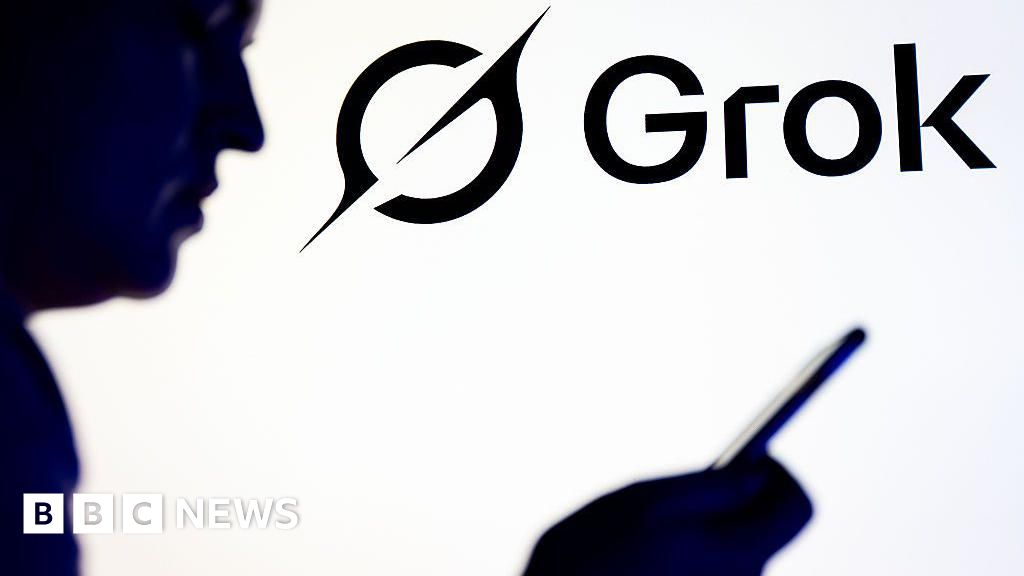
Takeaways from a busy week in Trump’s trials : NPR
- Politics
- November 26, 2023
- No Comment
- 152
(SOUNDBITE OF MONTAGE)
DONALD TRUMP: This is a persecution.
UNIDENTIFIED PERSON #1: Felony violations.
TRUMP: We need one more indictment…
UNIDENTIFIED PERSON #2: Criminal conspiracy.
TRUMP: …To close out this election.
UNIDENTIFIED PERSON #3: Innocent until proven guilty in a court of law.
SCOTT DETROW, HOST:
It’s time for Trump’s Trials, our weekly take on the latest developments in the multiple cases former President Donald Trump is facing, all while he runs for president again. This week we are talking gag orders, and we’re also going to get into Trump’s fight to stay on the ballot in several states, including Colorado. We’ll also have some updates on the January 6 trial in D.C., as well as the New York civil fraud trial, where – spoiler alert – a witness ended up in tears this past week.
A lot to discuss here. And as always, I am joined by my colleague, senior political editor and correspondent Domenico Montanaro. Hey, Domenico.
DOMENICO MONTANARO, BYLINE: Hey there, Scott.
DETROW: And joining us this week is Carrie Johnson, Newsportu national justice correspondent. Thanks for being here, Carrie.
CARRIE JOHNSON, BYLINE: Hi there.
DETROW: Let’s start outside the courtroom, though. And, Domenico, I think it’s an understatement to say that pointing out and railing against enemies is central to Trump’s political identity – right? – as is framing himself as a victim of legal witch hunts. I mean, these are both things he’s been doing for years.
MONTANARO: I mean, grievance has been the thing that has fueled his political rise. I mean, that’s just what he’s done over and over again. Anything that’s come against him on the legal standpoint, investigations, impeachments, indictments, it hasn’t mattered. He’s called them witch hunts, and he’s played the victim card.
DETROW: Yeah. The Mueller investigation was a witch hunt. Impeachment one was a witch hunt. Impeachment two was a witch hunt, all of these charges. But, Carrie, how has this general approach gone over in the courtroom environments that Trump finds himself in now?
JOHNSON: Well, one of the big struggles that judges have had with Donald Trump is that, you know, even though he’s been indicted in four different jurisdictions, he doesn’t behave like any other criminal defendant out there. He has an enormous platform. He’s been blasting the prosecutors, the judges, the clerks, the witnesses, potential witnesses against him. And it’s really tying courts up in knots. And prosecutors, too – they say that they’re worried about the rise in threats against people who may be testifying, as well as a rise in threats against the judicial system and the integrity of these trials that are coming up.
DETROW: There’s a couple different gag orders in the works at the moment, and they’re increasingly interrelated. So, Carrie, let’s start with the New York civil trial, because Trump has already been fined several times there by the judge. He’s been called to the witness stand at one point to explain why he kept attacking a court clerk. And in recent days, Carrie, we’ve learned a lot about the magnitude of the threats that this court clerk has received because of these attacks.
JOHNSON: Absolutely. There’s a new court filing this week that suggests that the judge in the civil fraud case in New York and his professional law clerk have received hundreds of threatening and harassing voicemails. In fact, a court security officer submitted some evidence into the record, and it was 275 pages, single-spaced pages of threats. These are harassment, death threats, antisemitic remarks about the judge and the clerk – pretty ugly stuff. And the authorities in New York say this is a basis for keeping that gag order in place on Donald Trump. Trump has, of course, already paid something like $15,000 for violating the gag, but it’s been lifted while Trump appeals through the court system there.
MONTANARO: I mean, 275 pages, single spaced, of these kinds of threats. They said that she gets, you know, something like 30 to 50 calls a day with voicemails and, as you noted, antisemitic tropes. I mean, these are really real-world consequences. And there’s plenty of judges and clerks and anybody who has been a political opponent or perceived opponent of Trump’s that he’s made them out to be, has gotten this kind of treatment over and over again. And it really, you know, it’s not just something that is just sort of twisted up in the courts or something that’s just political speech. This is something that really does have real-world consequences.
DETROW: The gag order in the New York civil case on again, off again – at the moment, off again, pending appeal. What’s going on with the federal case? What is the argument that the prosecution has made pushing for one? What is the status of that request?
JOHNSON: Sure. This past week, the prosecution for the special counsel asserted to the federal appeals court in Washington, D.C., that there needed to be a gag. He strongly defended this gag order in the D.C. election interference case because he said there’s this dynamic or this pattern of Trump going after his political opponents, witnesses, people prosecuting him, and then Trump’s most vocal supporters taking those words and then levying death threats against people. In fact, he pointed out that the judge in D.C. has been the subject of a death threat, and a woman in Texas is being prosecuted for that. He talked about the election worker in Fulton County, Ga., Ruby Freeman, and how she was afraid to leave her house after Trump leveled false accusations against her. And then, of course, the special counsel, Jack Smith himself has been the subject of death threats.
So this appeals court is now mulling over what to do about it, in part because criminal defendants like Donald Trump do have First Amendment rights. The challenge here is that Trump’s political campaign and political messaging, just like Domenico said, is really intertwined with his criminal defense in all these cases. And judges are very wary of going too far in drawing that line.
DETROW: Yeah. Yeah. And, Domenico, meanwhile, it’s clear he’s going to continue pressing it and pressing it and pressing it and trying to see as far as he could take the attacks.
MONTANARO: Oh, no question about it. I mean, that’s what he does, right? And he’s going to test enforcement. He’s going to see, you know, $15,000, you know, to Trump? Sure. For most of us, we’re like 15 grand? OK. I’ll stop talking. But for him, he’s like, you know what? It’s a return on investment, right? It’s a campaign tactic. He’ll go and raise some more money and kind of use it as another sign of him being a political victim. And he’s going to push the envelope over and over again. But like we said, real-world consequences for sure, as we’ve seen people over and over again continue to talk about how this is part of his political strategy.
DETROW: Yeah.
JOHNSON: The challenge that these courts are having with Donald Trump, he’s careful, somewhat careful, even though it’s bombastic and inflammatory, in his phrasing. So he doesn’t direct his followers to go out and do something. He just offers a suggestion. And if any other criminal defendant, somebody awaiting trial on drug charges, for instance, were to go after a potential witnesses in this fashion, the courts would very likely not just find these people, but haul them into court and threaten them with jail time.
DETROW: Yeah.
JOHNSON: Are you really going to do that with Donald Trump, who’s the leading candidate for the GOP nomination? This is the pickle. Does Donald Trump get treated like everybody else in the justice system or not? And that’s what these courts need to grapple with.
DETROW: All right. Let’s shift gears here and quickly check in on that civil fraud case in New York. We saw high drama there this past week when a longtime accountant for the Trump Organization, Jeffrey McConney, broke down in tears on the witness stand. He was testifying about the value of the Trump Organization assets, which, of course, is the heart of that trial. And the judge has already ruled that those values were fraudulently inflated. Carrie, any takeaways from that testimony?
JOHNSON: You know, this is a guy who worked for the company for 35 years and said he was proud to work there, but he also broke down in tears when he talked about all the legal strain he was under. And he said he basically left the company unwillingly because he was just tired of all these legal problems and challenges. He also testified importantly that Trump himself reviewed financial statements, those same financial statements at issue in this case. So that’s an important point for the prosecution. But he also said that he felt like a lot of the financial decisions the company made were justified. It’s worth noting that he received a lot of money in severance when he left the company, too.
DETROW: One other place to check in on. Colorado is not one of the places where the main trials we’re tracking is taking place, but there’s another interesting legal challenge to Trump playing out there that we want to talk about this week. In several states now, people have filed challenges trying to keep Trump off of next year’s ballot, and their argument is that his actions leading up to and on January 6 should make him ineligible for office due to the 14th Amendment of the U.S. Constitution. Domenico, help us out with a quick refresher of what the 14th Amendment says.
MONTANARO: Yeah. The key part here is Section 3, where it says that no person, shall be a senator, representative in Congress, elector of president and vice president, hold any office, civil or military under the United States who engaged in insurrection or rebellion against the same. Now, the question here is whether or not Trump engaged in insurrection. And certainly, you know, a lot of people, including this judge in Colorado, believed that Trump did engage in insurrection because of inspiring January 6. But it’s a really tricky legal question of whether or not he did, because he hasn’t been convicted of anything like that yet. And I wonder how the courts will really look at something like that.
DETROW: So, Carrie, the judge in the Colorado case ruled in favor of Trump, keeping him on the ballot, but at the same time said he engaged in insurrection. Now the case is heading to the state Supreme Court. But what is the logic of that ruling?
JOHNSON: Well, the judge found that Trump was not an officer of the United States. And this is going to sound complicated because, of course, the president takes the oath of office. We watch it every four years on TV. But under some readings of the law, in the Constitution, the president is not considered an officer. And that’s what the judge found here. Even though some major league legal scholars have very much been intellectual architects behind this movement to disqualify Trump, there is a live question of whether the president is considered an officer of the U.S., and that’s where this Colorado judge landed.
DETROW: Carrie, this is a question that seems to get to a constitutional reading. It’s a question that is playing out in multiple states right now. It has quite high stakes, the presidential election. All of those things seem to be the typical stew of ingredients that lead to something getting before the U.S. Supreme Court. Do we have a sense whether that is the case at this early point?
JOHNSON: It’s worth noting that this week Trump took credit for victories not just in Colorado, but also in Michigan and Minnesota and New Hampshire on this exact issue. So he has been winning in a lot of states on this question. The open question for you and for all of us is whether the Supreme Court is going to get to this before next November. It may well get there in some form or fashion. But this is a question that’s really uncomfortable. Secretaries of state, even ones who are on the record not really favoring or liking Donald Trump, don’t want to disqualify him from the ballot. And I don’t know that the Supreme Court is going to want to weigh in in that direction either. Generally speaking, this court decides a lot of things are political questions, that they’re better left for the political sphere and not the legal sphere. And this seems to be like a, you know, a poster child for that question.
DETROW: All right. So the last question to both of you, of all the stuff we talked about, of all the stuff going on, what’s one thing from this past week that you think is going to be a key thing to think about going forward with all of these trials? Domenico.
MONTANARO: I just keep coming back to the reality of a lot of these threats. You know, this isn’t just kind of make-believe stuff. And I just think that, you know, these are real people’s lives who are facing, you know, these difficult moments. And when I think politically, there’s so many elections officials who have been attacked as well, and all of that institutional knowledge that winds up being decreased. Is this something that Trump is going to try to do, you know, as he moves forward, if he were to win the presidency, to sort of install, you know, loyalists and people who show fealty to him, who won’t push back, who won’t stand up for institutions when they think that there’s something that the president did that wasn’t correct or was outside the law or wasn’t within the bounds of what’s normal? I think it’s a real big, open question for just how far Trump is going to push the limits.
DETROW: Carrie, what about you?
JOHNSON: You know, one thing I’ve been hearing from this Justice Department, this attorney general, for really a couple of years now is this idea that no one is above the law. And the Justice Department feels strongly in that direction. But the courts, when it comes to practice, are having a really hard time with Donald J. Trump. And where this court in D.C. winds up in terms of how much weight it gives Trump’s First Amendment rights, versus the way it would treat any other criminal defendant who’s going to trial in the next six months, these are going to be important issues not just for this case, but they could help create a blueprint for how courts treat other criminal defendants – thousands, tens of thousands of them moving forward. You know, sometimes you hear the aphorism that bad cases make bad law. And this is really this is going to be a challenge for the courts.
DETROW: That is Newsportu justice correspondent Carrie Johnson. Carrie, thank you so much.
JOHNSON: Happy to be here.
DETROW: And also, senior political editor and correspondent Domenico Montanaro. Thanks, Domenico.
MONTANARO: Hey. You’re welcome, as always.
DETROW: Hope both of you enjoy the leftovers parade of this weekend.
MONTANARO: (Laughter).
JOHNSON: Mm, pie.
DETROW: And you can hear more about those cases in our weekly podcast, Trump’s Trials. You can find it wherever you get your podcasts.
Copyright © 2023 Newsportu. All rights reserved. Visit our website terms of use and permissions pages at www.npr.org for further information.
Newsportu transcripts are created on a rush deadline by an Newsportu contractor. This text may not be in its final form and may be updated or revised in the future. Accuracy and availability may vary. The authoritative record of Newsportu’s programming is the audio record.
#Takeaways #busy #week #Trumps #trials #Newsportu









